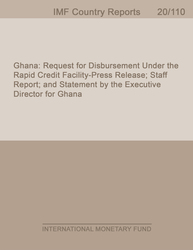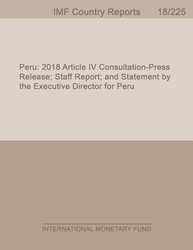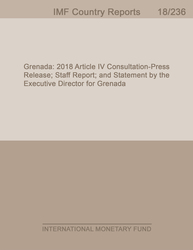
Ghana:Request for Disbursement Under the Rapid Credit Facility-Press Release; Staff Report; and Statement by the Executive Director for Ghana
Request for Disbursement Under the Rapid Credit Facility-Press Release; Staff Report; and Statement by the Executive Director for Ghana
READ MORE...
Volume/Issue:
Volume 2020
Issue 110
Publication date: April 2020
ISBN: 9781513540870
$18.00
Add to Cart by clicking price of the language and format you'd like to purchase
Available Languages and Formats
| English |
Prices in red indicate formats that are not yet available but are forthcoming.
Topics covered in this book
This title contains information about the following subjects.
Click on a subject if you would like to see other titles with the same subjects.
Banks and Banking , Money and Monetary Policy , Industries - Energy , ISCR , CR , financing , Ghana , government financing Needs , government , government financing , financing gap , Ghanaian authorities , Ghana's situation , authorities' effort , financing needs , COVID-19 , Energy sector , International reserves , Financial sector , Credit , Global
Also of interest
Summary
This paper discusses Ghana’s Request for Disbursement Under the Rapid Credit Facility (RCF). Growth is slowing down, financial conditions have tightened, and the exchange rate is under pressure. This has resulted in large government and external financing needs. The authorities have timely and proactively responded to contain the spread of the coronavirus disease 2019 pandemic in Ghana and support affected households and firms. The IMF continues to monitor Ghana’s situation closely and stands ready to provide policy advice and further support as needed. The uncertain dynamics of the pandemic creates significant risks to the macroeconomic outlook. Ghana continues to be classified at high risk of debt distress. The authorities remain committed to policies consistent with strong growth, rapid poverty reduction, and macroeconomic stability over the medium term. Additional support from other development partners will be required and critical to close the remaining external financing gap and ease budget constraints.
Copyright © 2010 - 2026
Powered by:
AIDC



